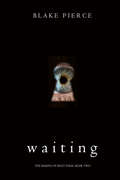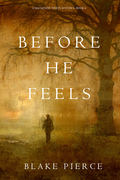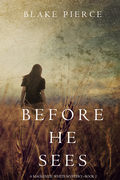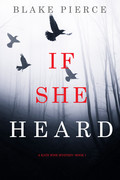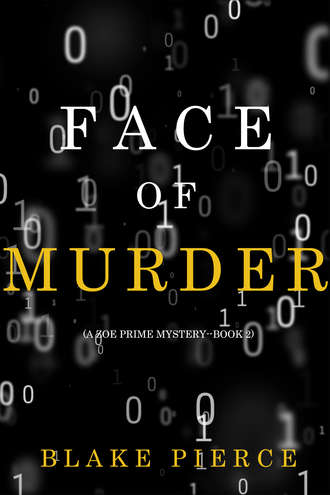
Блейк Пирс
Face of Murder
CHAPTER THREE
Zoe strode along the corridors of the vast FBI HQ building in Washington, DC, heading toward the particular briefing room where Shelley had said she would be waiting. Buildings like this were soothing for Zoe: built long enough ago but with enough planning and precision that each floor was easy to predict and navigate.
The J. Edgar Hoover building had been built with intent. Although from the outside it was square and gray, the kind of architecture people described as an eyesore, the blocky, geometric composition was exactly what Zoe loved about it. The corridors branched off in the exact same way no matter where you got off the elevator, and the rooms were numbered in a logical way. Room 406, quite naturally, was the sixth door that you would come to after getting off on the fourth floor. That was immeasurably pleasing. Not all buildings were created equal.
Sure enough, Shelley was already sitting in the briefing room, studying notes and color photographs placed at neat intervals along a boardroom table. She looked up and smiled as Zoe entered.
Zoe could not quite figure out how Shelley, with a young child at home and no particular advantage in distance from her home, could beat her to the HQ. Not only that, but how she could be neatly dressed in a suit that fit her curvy yet slim frame, accentuating the angles between her hips and waist and breasts, without a speck of the normal dirt one would expect to accumulate around an infant. Even how she could be perfectly made up, with a slight hint of pink lipstick on her lips, and her blonde hair tied just-so into a chic chignon. But there it was.
Their superior, Special Agent in Charge Leo Maitland, stood at the front of the room, waiting with the coiled impatience of a jaguar on the hunt. He was an Army vet with a soldier’s bearing, and after a successful career through the ranks he had come home to switch to law enforcement. That had all been fifteen years ago, but the graying hair at his temples gave no indication that he was any less the fighter he had once been. He stood at six foot three, with a forty-five-inch chest and fifteen-inch biceps that still strained at the hems of his uniform.
“Ah, Special Agent Prime,” he said. “Welcome. I’ve handed out the briefing notes to your partner. Please take a seat and go over them.”
Zoe sat as she was bidden, setting down a takeout coffee in front of Shelley. It had become a habit of theirs. Zoe provided the coffee, and Shelley would provide all the polite conversation that was needed during the case. Each of them taking care of something that they could actually manage.
“Special Agent Rose has all the information, but I’ll give you an overview. We have two bodies on our hands already, and this looks like a local case, so you won’t need to travel.” Maitland folded his arms over his chest, causing the material of his suit to visibly strain at the shoulders. “We’ll be under some pressure from the local press given that one of the victims was high-profile in the community. You are no doubt also familiar with the urgency of preventing a third death and having the term ‘serial killer’ attached by journalists.”
Zoe nodded. That kind of reporting could cause hysteria and end up impeding the case. It was also likely to spread the news further—and that meant more national or even international press to deal with. FBI agents were used to dealing with high-pressure situations, but that did not mean they were welcome. Particularly for Zoe, who would be counting microphones and analyzing the lengths of television camera cables rather than concentrating on her press conference speech.
“Given your lateness…” Maitland continued. Zoe felt her mouth beginning to open in protest, but she clamped it shut. She had arranged to take some time off this morning for her brunch, exchanging some of the many, many hours of unpaid overtime she had worked. She was hardly late. But one did not argue with the Special Agent in Charge of the J. Edgar Hoover Building. “I have already briefed your partner. I will leave her to dispense the details to you. Given your proclivity for math, we thought this would be an excellent fit for your skillset. Don’t let me down.”
Maitland swept out of the room without pausing to look back. Zoe noted his hand straying immediately to his pocket as he left the room, and figured the inch-thick bulge was likely a cell phone. He was a busy man, with calls to make and further briefings to give. It wasn’t likely that they would see him much until the case was done—unless they messed something up, in which case he was liable to come down like the figurative ton of bricks.
Given Maitland’s size, and that a ton was two thousand pounds, he wasn’t really like a ton of bricks at all. More like a tenth of that value.
“Two victims,” Shelley said, grabbing Zoe’s attention without so much as a polite triviality to start the conversation. She was starting to know Zoe better, and she must have realized by now that such comments would make no positive difference to their relationship. Zoe had noticed at least a seventy percent decrease in small talk since they had begun working together. “Both of them in our own backyard. DC metro area.”
“I hope not in either of our actual backyards. As federal agents, you would think we might notice.”
Shelley’s eyes flashed with a spark as she nudged Zoe in the ribs. “Was that an actual joke? What’s in this coffee?”
“I was with an old friend this morning. I suppose it put me in a good mood.”
“Then I’m sorry to break that.” Shelley pointed to the two victim files, spread out carefully and separated in a deliberate way. “This is the first victim, from about a week ago. He was a young grad student, found on the grounds of the Georgetown campus. His head was bashed in with a heavy object—forensics say that it was probably a bat.”
“Six days,” Zoe murmured, her eyes scanning the file. She picked up his information: six feet tall, one hundred eighty pounds, twenty-three years old.
“Sorry, yes.” Shelley was evidently still getting used to the precision that Zoe expected, even if they were finding it easy to settle in in other ways. “The second victim was last night. An English professor at Georgetown, his head was smashed repeatedly against the side of his own car until irreparable cranial damage had been inflicted.”
“The college is the connection.”
“Not just that.” Shelley shuffled the photographs, drew out overhead shots that showed the crime scene in full. “Both of them had their shirts ripped open—and I mean ripped, with some violence. It seems the act of killing wasn’t enough to sate the killer’s anger. Then there are these… well, see for yourself.”
Zoe all but snatched the images from Shelley’s hands. She had already begun to recognize the form of the markings scribbled across both men’s torsos, and a closer look confirmed it. They had both been emblazoned with complex mathematical equations—complex enough that Zoe pulled out a chair and sank into it without taking her eyes away.
“Have these been shown to any potential witnesses? Friends, faculty members, students?”
“In the case of the first victim, yes. The local cops showed the image around. Heavily cropped to just the equation itself, of course. They just finished circulating the other shot this morning, though we may still be able to dig up a few more leads, I suppose.”
“And?”
Shelley shrugged. “No one knows what it means.”
Zoe knew well enough that the math department at Georgetown had a good stock of professionals, and if they couldn’t figure it out, that meant that this was some serious kind of equation. “It looks like quantum math.”
“That’s what a few of the professors said. But they don’t recognize it as anything that any of them have seen before, or been working on.”
Zoe continued staring at the equation, her mind racing along and through all the complex signs and numbers and letters, trying to find at least an entrance into the pattern. “What other leads do we have?”
Shelley sifted through a few more pages. “I was just getting there when you came in. Let me see… the student’s roommates and friends have all been questioned, as well as his family and teaching staff. He was in an area of the campus which isn’t covered by cameras, right in a dead spot.”
“Convenient,” Zoe sighed. She wished that just once, they would get hold of a case that had been committed in full sight of witnesses or caught on camera. Of course, they didn’t usually call in the FBI for the ones that were easy to solve.
“As for the professor, looks like there were only cameras at the entrance to the parking lot. So many people come in and out of there all day, and we don’t have eyes on one of the pedestrian exits at all. Nothing suspicious caught on camera.”
“No leads at all,” Zoe noted, propping her chin on one hand as she went over the equation for the seventeenth time already. Slower, faster, it wasn’t making much difference. This was like nothing she had ever come across. Far beyond the level that she had studied during her own time in college.
She switched to the other one, the professor. It seemed just the same. What was this?
“What do you want to do first?” Shelley asked, completing her own study of the files.
“Just a second.” Zoe had not even taken the time to check the second victim’s particulars yet, but there was time for that. She took out her notebook and pen and started writing, making quick and sharp indentations on the page as she began to sketch out an initial working. Greek letters, lines, brackets, downward-pointing triangles—all symbols in quantum math had an equivalent meaning that would reveal a number. M divided by t” minus t’, one divided by s’ then added to one divided by s”, and so on and so forth, all to find the value of B1 which could later be inserted back into another line of the equation to work out the value of another figure.
The workings started easily enough. If the value of M was equal to the value of r’, then the first two lines made perfect sense; but then the third line disrupted it all, and appeared to give a totally different value for M. Fine; she worked it through another way. Perhaps M was, in fact, double the value of r’, which still made enough sense there, and made the third line work—but by the sixth line, the value of M had to be shown to reach zero, and there again it all made no sense.
When Zoe looked up again, she had no idea how much time had passed. At some point, Shelley had sat down opposite her, and was thumbing through something on the screen of her cell.
“This does not make any sense,” Zoe announced.
Shelley looked up, lifting a carefully shaped eyebrow. “You can’t work them out?”
Zoe’s lips flattened into a thin line before she could make herself admit it. “I cannot work them out yet,” she said. “Maybe we are missing some kind of clue. This is definitely all of it? There was not something written on their backs, or arms, or elsewhere?”
“I know as much as you know,” Shelley said. “I’ve been reading up on the professor. Nothing stands out from his academic history, or from what I can see of his personal life that has made it online.”
“Check the photos again,” Zoe suggested, handing her a bundle and picking up some for herself. She pored over the shots, her eyes taking in the angles of bones, the degree at which a leg had bent in death, the length of the rips in their shirts versus the visible strength of the material and its stitching. Nowhere could she see any connection. Not in their heights, weight, their ages—and no hint of any other ink slashed across their skin.
The worrying thing, of course, was that mathematical patterns became easier to predict the more data you had. Two numbers could seem unconnected, any number of possibilities between them, too many to decide on a definite course. Three numbers, well, that would allow one to make more of a case, begin a formula. But that would require another death.
And they certainly didn’t want another death.
“I’ve got nothing,” Shelley said, shaking her head.
“Swap,” Zoe suggested, handing her bundle over and taking Shelley’s in return. “The only thing of note is the angle of the impact on the first victim’s head. The attacker was a little shorter, probably five nine.”
And again, it was the same. The same frustrating nothing. No hint of ink on clothing, no trailing off of the numbers underneath fabric, nothing in the general vicinity. The parking garage spaces were not numbered, and nor were there numbers on the walls, on the concrete columns holding up the ceiling, on the grass near where the student was found.
Nothing.
Zoe gave up, shaking her head. “I need to see the professor’s body,” she said. “It is the only way we are going to spot something that the photographs do not already tell us.”
“Great,” Shelley said. It was possible that she was being sarcastic; Zoe had always had a hard time telling the difference. “Then let’s go take a close look at a dead guy.”
CHAPTER FOUR
Zoe tapped her fingers on the steering wheel as they drove over to the local coroner, glancing sideways at Shelley. There was something about this case that was already bothering her, and she had to voice the doubts that were creeping into her head before they became obsessive. “It’s funny that Maitland knew I would want to work on a math-based case. I have never discussed with him that I enjoy working with numbers.”
Shelley cleared her throat slightly, not turning to meet Zoe’s eyes. “Well, I volunteered us for this one. I just happened to hear it coming in, and, well, the chief agreed we could take it.”
Zoe digested this for a moment. She didn’t usually get things from her boss just because she asked for them. “Just like that? You did not need to persuade him?”
Shelley was twisting the pendant she wore, a gold arrow set with a diamond that she had inherited from her grandmother, around and around in her fingers. “I told him that since you were really good with math, we would be able to get a better start on it than anyone else.”
Zoe resisted the urge to slam on the brakes, keeping the car steady and smooth. She focused on the road until the rushing in her head had slowed down, and spoke deliberately and calmly. “You said I was ‘good with math’?”
“That’s all I said, I swear. I didn’t tell them the truth. Not about, you know, what you can do.”
Shelley sounded apologetic, but that was not quite enough to make the roaring in Zoe’s ears go away. Good with math. That was close to the truth, too close to be comfortable. It was almost an admission.
Maybe she had made a grave mistake, trusting Shelley to not give away her secret. But her partner had sworn, so many times over, that she would never reveal it to anyone without Zoe’s consent. While she technically had still not done that, it was close. Too close.
“Look, it’s fine, isn’t it?” Shelley asked. Her voice had risen in pitch now. “I’m really sorry if you didn’t want me to say that, but it’s just a little piece of the way things really are. Not the whole picture. And anyone can be good at math, you know? It doesn’t make you that much different.”
Zoe’s fingers tightened on the steering wheel, so tight the rubber grips made a quiet noise, and she worked her jaw stiffly. “It was not up to you to tell them that.”
“I just—I didn’t think it would be a big deal, to say that much.” Shelley sighed, slumping back against the passenger seat headrest. “I messed up, I can see that now. I’m sorry. But after you solved our big case in Kansas, surely they would have to figure that you’re good with numbers anyway. I know I can’t tell anyone, and I won’t, but I don’t know why you feel you need to hide it.”
Zoe gritted her teeth. Of course, Shelley didn’t understand. Shelley hadn’t been there. She hadn’t been forced to pray by her bed on the cold floor all night, her mother shrieking and sermonizing about the devil’s gift. She hadn’t been scolded at school for her distraction, or made fun of and ostracized by the other children for the uncanny things she could tell just by looking at them.
She hadn’t been there through every failed relationship Zoe had endured, misunderstood time and time again, left with nothing but the label “freak” and another broken heart.
“It is my secret to tell, or not, as I choose,” she said firmly, once her heart was beating slow enough again that she could say the words instead of spit them, and Shelley had the wisdom to forgo a reply.
They pulled up outside the coroner’s office and Zoe slammed the car door behind her, stalking over to the entrance. Then she stopped. It would do no good at all to go into the examination with this kind of energy hanging over her. She had to forget it, put it on a shelf inside her mind and come back to it later. For now, she had to be professional.
The coroner, a trim Asian woman in her mid-forties with sharp eyes and hair cut at a sharp ninety-degree bob in line with her chin, was obliging enough. She showed them the professor’s body, and stood back respectfully while they made their examination.
Lying naked on the metal gurney, the man was reduced to nothing more than white meat. Take the sheet away, and it was hard for Zoe to connect and keep connected the lines between this hunk of dead flesh and the man it had been. Whoever he was had long gone. She could see it still, in the yellowed fingertips that spoke of a nicotine habit and the small inch-long impression over his left ear where he had spent years wearing ill-fitting glasses. But the essence, the being, whatever it was that had once filled this body and animated it, was nowhere to be found.
It was better that way. People distracted her. They hid their true selves behind words and gestures that she could not always understand. But bodies could not lie. They were as they were, no more and no less.
It didn’t hurt, of course, that his face was gone. Smashed inward. The nose had been reduced to an entirely flat plane of the face, all the bumps and curves pressed against the inside of his skull now. The right side of the head, too, was cracked and squashed, bearing clear lines of impact. No one could have survived that. Even one of his eyes was gone.
The equation was there on his torso, written out sideways from the top of his chest to just below his navel. It was all as it seemed in the photographs—the full piece had been captured faithfully. Wearing uncomfortable white disposable gloves, Zoe turned over each of his arms and legs, and even hefted him onto his side with Shelley’s assistance. Nowhere could they see any other trace of ink, or indeed any marking that could hint at being a missing part of the equation.
“They didn’t miss anything,” Shelley said out loud, confirming the growing frustration that was building in the center of Zoe’s forehead.
“The other one.” Zoe turned to look at the coroner. “We need to see the student as well.”
The coroner shrugged, making a gesture that seemed to suggest she thought it pointless, and walked over to open another tray of the metal filing cabinet that served as a temporary resting place. She tugged it open with a long scraping sound of well-oiled metal on metal, and stepped back to allow them access to the resident.
The college student looked even younger than he had in the photographs, lying on the cold metal tray with all the blood drained out of his cheeks and the color with it. The top of his head was a mess, open and crushed inward. He was covered with a respectful sheet, but respect was only an obstacle in this case. Zoe stepped closer and tugged it aside, noting Shelley’s reluctance to do so.
For a long second, Zoe stared, unable to comprehend what she was looking at. Then she briefly wondered if they had pulled out the wrong body, but she had recognized his face from the crime scene photos. Finally, disbelief reigned, and she turned on the coroner with a glower that had the other woman backing away.
“Where are the equations?” Zoe asked, her tone low and flat, menacing enough to tell anyone about the anger behind it.
“Well, we performed the autopsy,” the coroner stuttered, feeling for a metal table behind her to steady herself. “We always wash the bodies to perform the autopsy.”
“You scrubbed away the evidence.”
Shelley stepped closer to lay a gentle hand on Zoe’s arm, perhaps warning her to cool down. Zoe ignored it. She was seething, every muscle in her body wanting to explode in a burst of energy and throw something at the wall. Maybe at the coroner.
The only reason she didn’t was that it was very clearly against the professional code of conduct. How could they have allowed something like this to happen?
“Who authorized the cleaning?” Shelley asked, her tone quiet and calm. She stepped forward, slightly in front of Zoe, as if shielding her.
The coroner fumbled for paperwork, still stuttering, her face gone pale. Zoe couldn’t take any more. She stalked out of the room with a growl in the back of her throat, slamming the door behind her for good measure. It being a swing door, the movement lost some of its effect, but it released some of the tension in her body all the same.
Shelley joined her a couple minutes later, finding her pacing up and down at the end of the corridor.
“We should have them written up for tampering with evidence,” Zoe said, as soon as Shelley was close enough to hear.
“They were within the scope of their instructions,” Shelley sighed, shrugging her shoulders. “The photographer felt they had captured everything. We’re just going to have to take their word for it.”
“They should be punished anyway. Do they not have common sense? It was clearly evidence. And the lead investigators not having even seen the body yet!”
“Well, in fairness, this was a local case when they did the autopsy, not a federal one. What’s done is done. We just have to work with what we have.”
Shelley was being rational; too rational. Zoe didn’t like it. She wanted a justification for the frustration she felt, dammit, a common feeling between the two of them. She hated being made to feel like she was the freak with the problem. Things being done incorrectly was a problem. People were supposed to do the jobs they were paid for. That was how society worked.
“Something like that should have been obviously important,” Zoe said, trying one last attempt at lulling Shelley into her own rage.
It was not to be. “We’ve got to keep moving anyway,” Shelley said, stepping outside and looking back to make sure Zoe was following her. “Should we go talk to the professor’s wife next?”
Zoe nodded, giving up. Maybe she was overreacting. She had been told that she could do that, on occasion.
There was more to this case than the physical evidence on the bodies. Of course, the math was tantalizing, as was the target of a respected university. But there was always another story to be heard from the family of the victims, the people who knew them.
Perhaps Mrs. Henderson would be able to shed some light on her husband’s death—and get this frustrating case wrapped up sooner rather than later.



